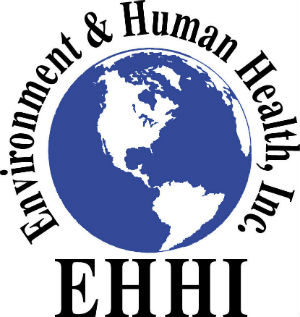Artificial Turf: Chemical Analysis
STUDY CONDUCTED AT THE YALE SCHOOL OF THE ENVIRONMENT ON CRUMB RUBBER INFILL FOR SYNTHETIC TURF FIELDS AND PLAYGROUND RUBBER MULCH
The shredded rubber tire playground mulch samples tested were provided by the manufacturer and were purchased in new bags of rubber mulch for use in gardens and playgrounds. The crumb rubber infill for synthetic turf fields was obtained as new infill material from installers of synthetic turf fields. There were 5 samples of crumb rubber infill from 5 different synthetic turf installers and 9 different samples of rubber mulch taken from 9 different unopened bags of playground mulch.
RESULTS OF THE STUDY: 10 CARCINOGENS AND 21 IRRITANTS FOUND
There were 96 chemicals found in the 14 samples analyzed. Half of those chemicals had no government testing on them — so we have no idea whether they are safe or harmful to health. Of those chemicals found that have had some government testing done, these are the findings with their health effects.
10 CARCINOGENS
2-mercaptobenzothiazole
Carcinogen, toxic to aquatic
life
9,10-dimethylanthracene
Carcinogen, respiratory irritant
and can cause asthma
Bis(2-ethylhexyl) phthalate
Carcinogen, may cause damage
to fetuses
Fluoranthene
Carcinogen, one of the US EPA's 16 priority
pollutants, a PAH
Phenol, 4-(1,1,3,3-tetramethylbutyl)-
Carcinogen
Phenanthrene
Carcinogen, a PAH
Pyrene, 1-methyl-
Carcinogen
Tetratriacontane
Carcinogen, eye and skin irritant. Can
cause systemic damage to central nervous system.
Pyrene
Carcinogen, toxic to liver and kidneys, a PAH
Carbon Black
Carcinogen
Carbon Black makes up to 20%
to 30% of every tire. It is used as a
reinforcing filler. Carbon Black is listed as a carcinogen by the International
Agency for Research on Cancer (IARC).
The reason Carbon Black, as such, was not analyzed by the Yale Study is because Carbon Black is made up of a number of chemicals, some of which were found in the Yale study. Carbon Black is not one chemical — it is made up of many chemicals — often of petroleum products.
Furthermore, carbon black has no fixed composition, even of the many compounds it contains. Carbon black from different sources will have differing compositions. In our method, carbon black will register as a series of substances extracted from it. There is no carbon black molecule — it's a mixture.
21 IRRITANTS (6 toxic to aquatic life)
1,4-Benzenediamine, N-(1,3-dimethylbutyl)-N'-phenyl-
Irritant —
causes skin and eye irritation, toxic to aquatic life
1,4-Benzenediamine, N-(1-methylethyl)-N'-phenyl-
Irritant —
causes skin and eye irritation, toxic to aquatic life
2(3H)-Benzothiazolone
Irritant — causes skin and lung irritation
2-Dodecen-1-yl(-)succinic anhydride
Irritant — causes eye, skin
and lung irritation
3,5-di-tert-Butyl-4-hydroxybenzaldehyde
Irritant — causes eye,
skin and lung irritation
Anthracene
Irritant — causes skin, eye and respiratory
irritation. Breathing it can irritate the nose, throat and lungs causing coughing
and wheezing.
Benzenamine, 4-octyl-N-(4-octylphenyl)-
Irritant — causes eye and
skin irritation
Benzenesulfonanilide
Considered hazardous, very little testing has been done on
it.
Benzothiazole, 2-(methylthio)-
Irritant — causes skin and eye
irritation
Dehydroabietic acid
Toxic to aquatic organisms
Docosane
Irritant — causes skin irritation
Hexadecanoic acid, butyl ester
Irritant — causes eye, skin and
lung irritation. Can cause reproductive effects.
Methyl stearate
Irritant — causes eye, skin and lung irritation
Octadecane
Irritant — causes skin, eye and lung irritation
Octadecanoic acid also known as Stearic acid
Irritant — causes
skin, eye and respiratory irritation
Oleic Acid
Irritant — causes skin and eye irritation
Phenol, 2,2'-methylenebis[6-(1,1-dimethylethyl)-4-ethyl-
Irritant
— causes skin, eye and respiratory irritation
Tetradecanoic acid
Toxic to aquatic organisms. Skin and eye irritant
Acute aquatic toxicity, Not much data available — what exists shows it to be an eye, skin and lung irritant
Phthalimide
Toxic to aquatic life
Acute aquatic toxicity, serious eye irritant
